Abstract
We evaluated a teacher training and supervision program for increasing the involvement of severely handicapped adolescents and adults in functional educational tasks. The program, consisting of a brief in-service followed by supervisory prompts and feedback, was accompanied by large increases in functional tasks in three classrooms. In addition, generalized increases occurred during nontargeted times in the classroom and the changes during both the targeted and nontargeted times were maintained over a 44-45 week period. In two subsequent experiments, surveys provided social validation for the criteria for functional versus nonfunctional tasks in that: (a) relevant individuals reliably categorized functional tasks as representing typical living, work, social, and leisure situations and (b) experienced clinicians consistently rated tasks previously categorized as functional as being more useful for severely handicapped persons than tasks categorized as nonfunctional. Results are discussed in terms of the relationship of functional classroom tasks in the overall provision of appropriate educational services for severely handicapped students.
Full text
PDF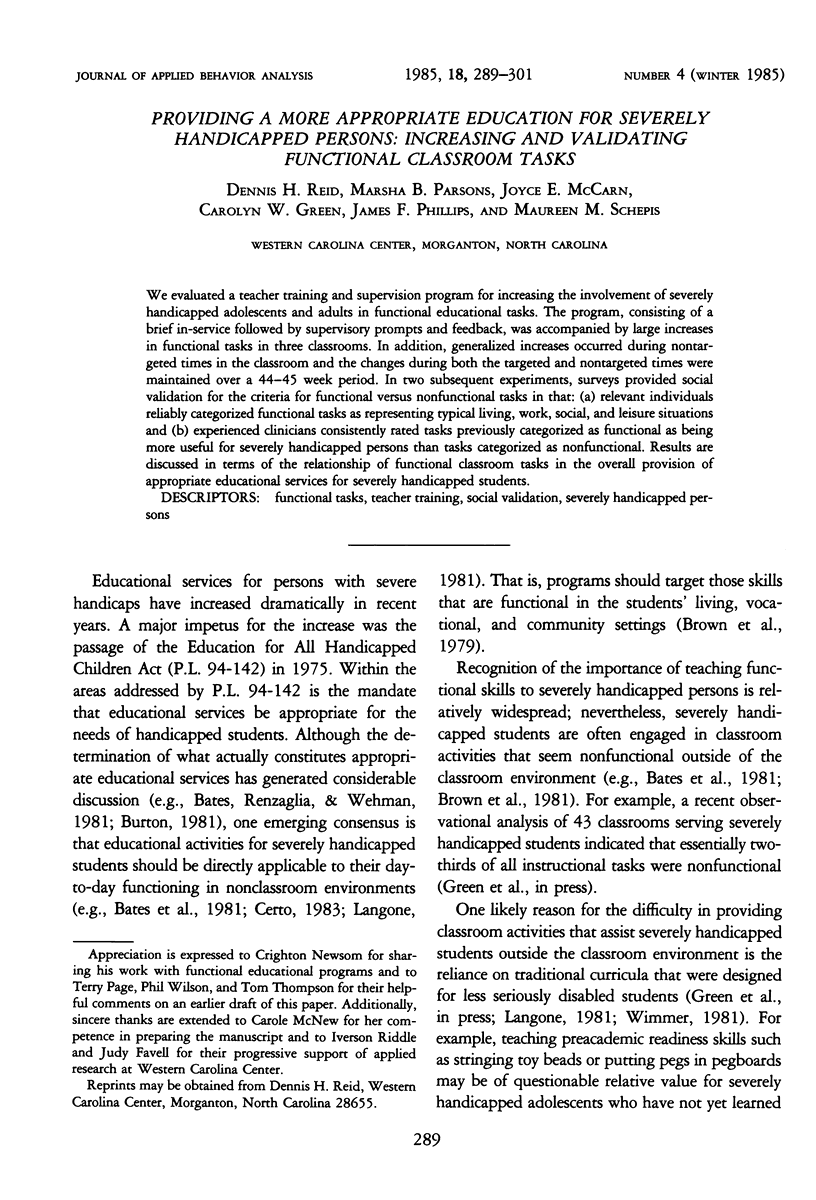
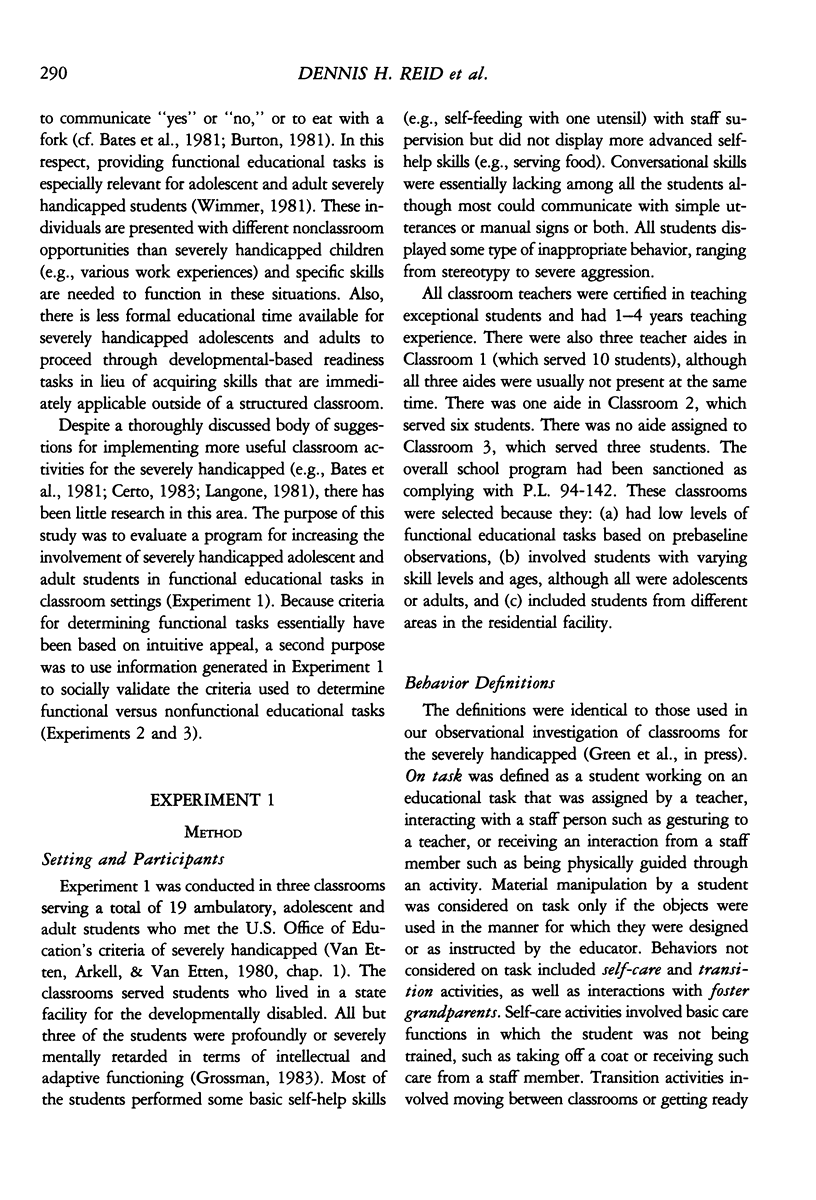
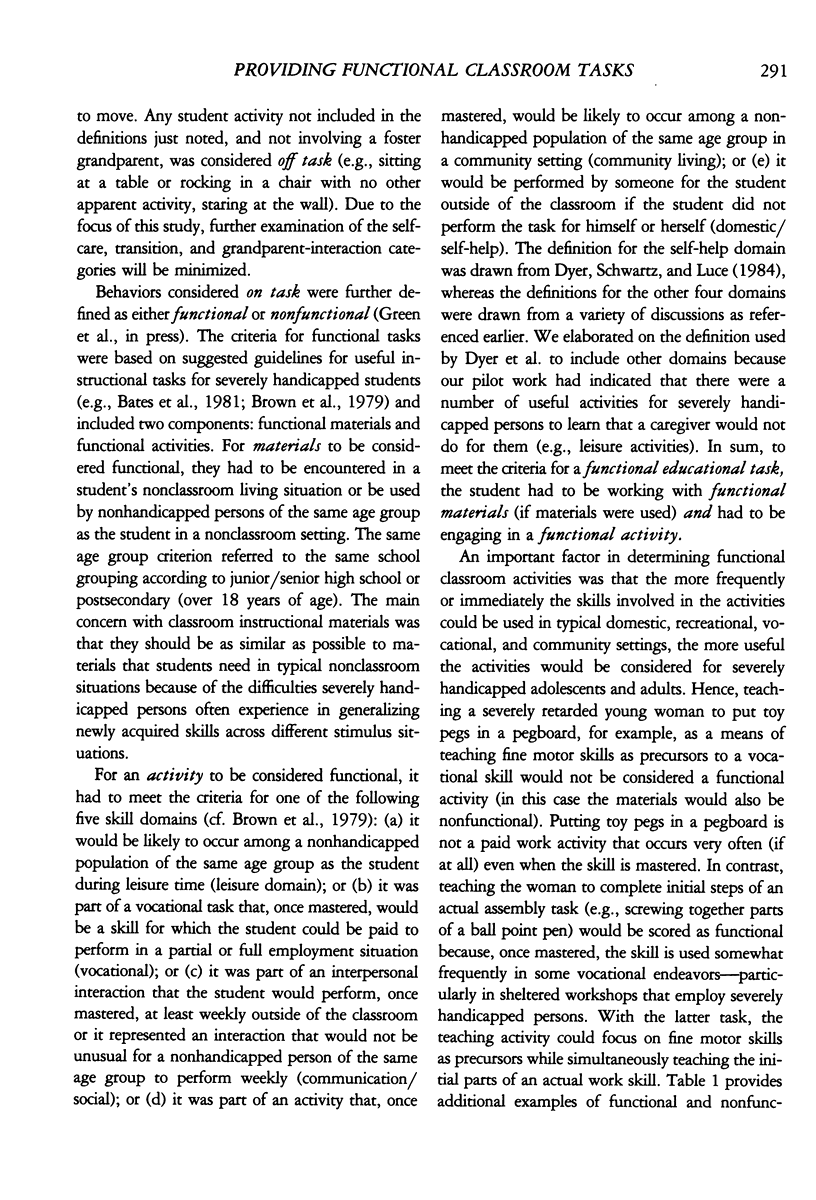
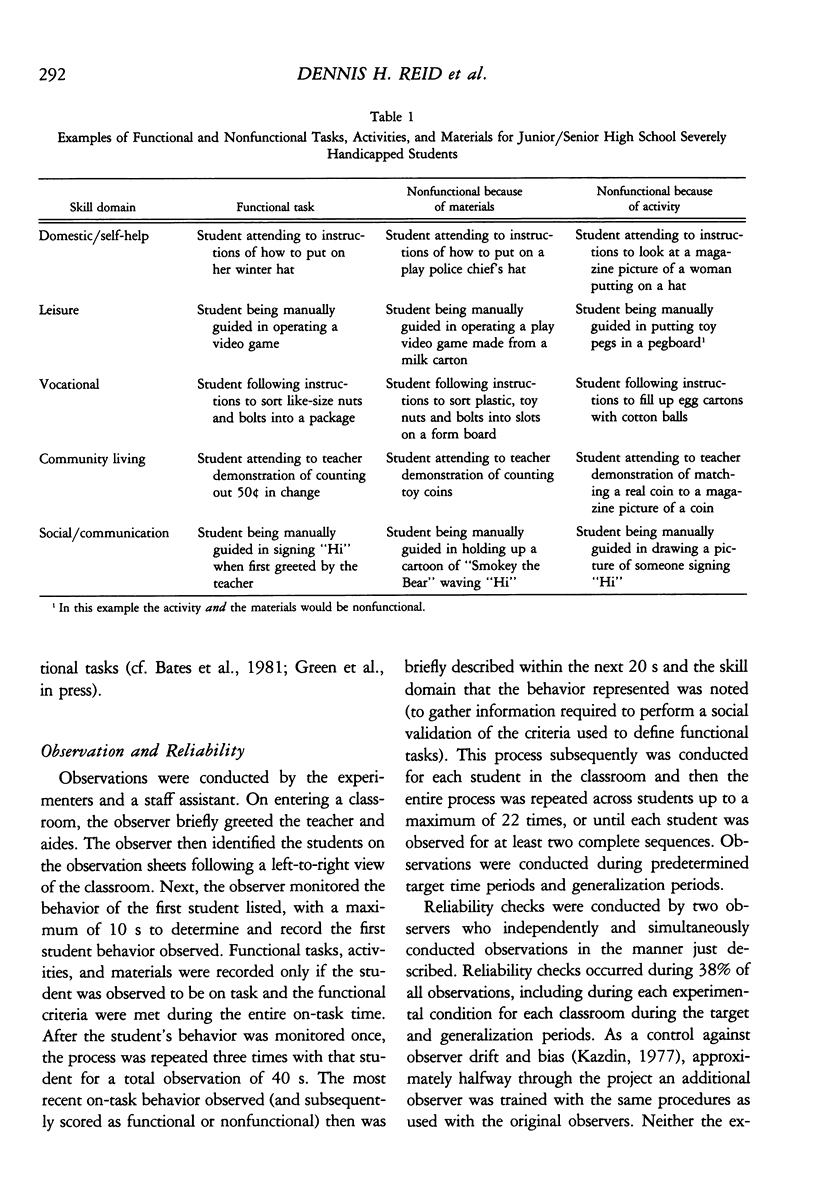
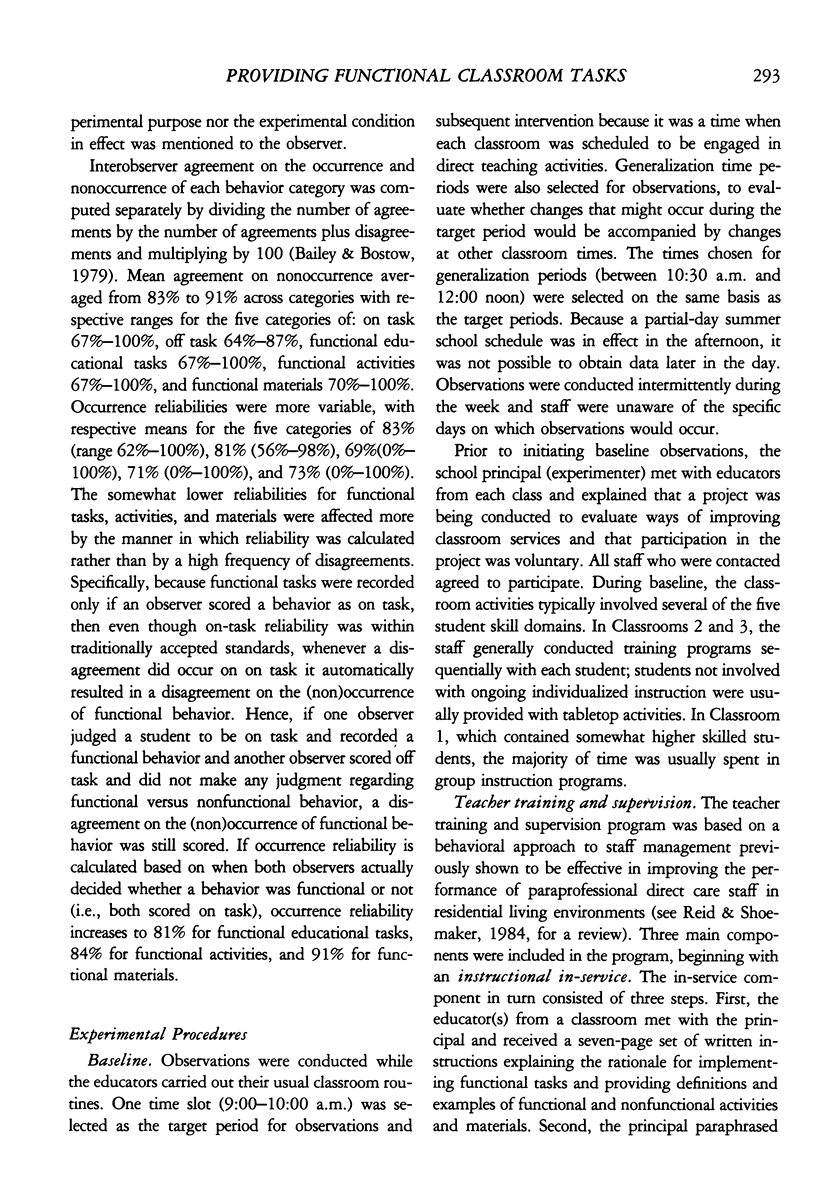
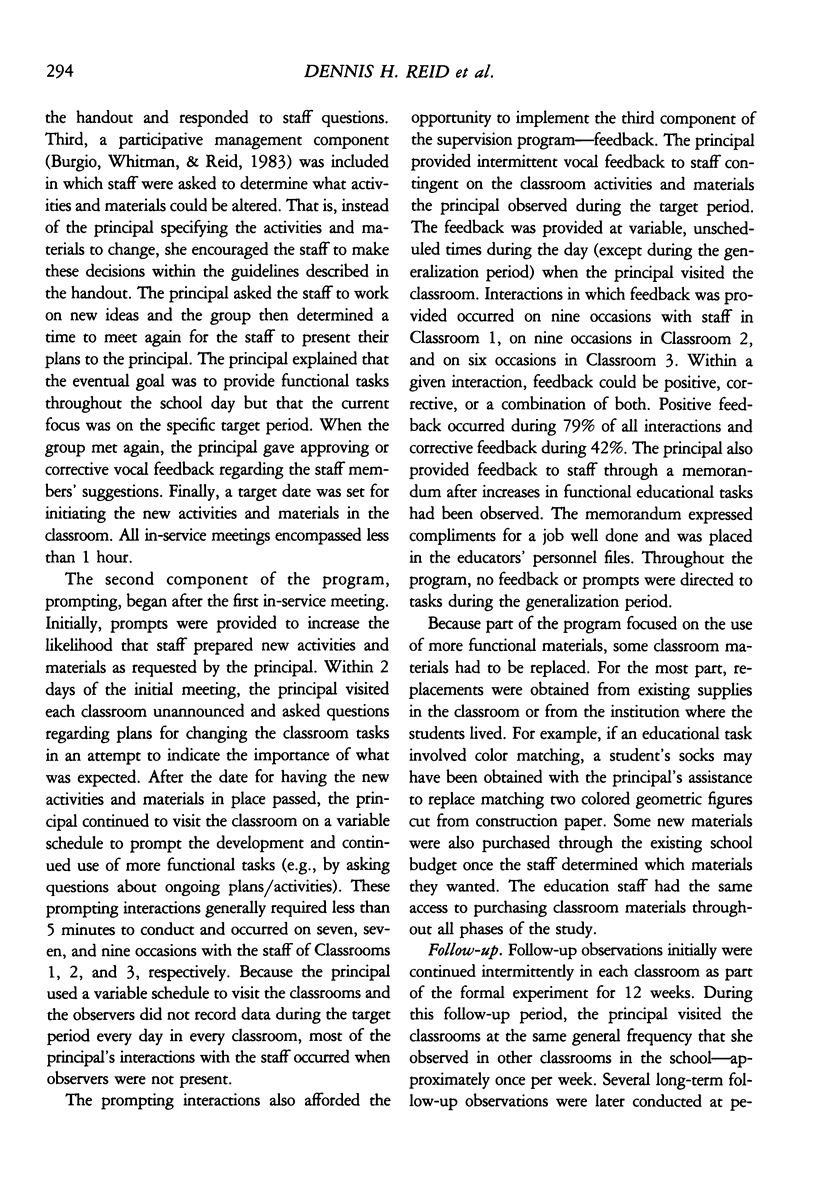
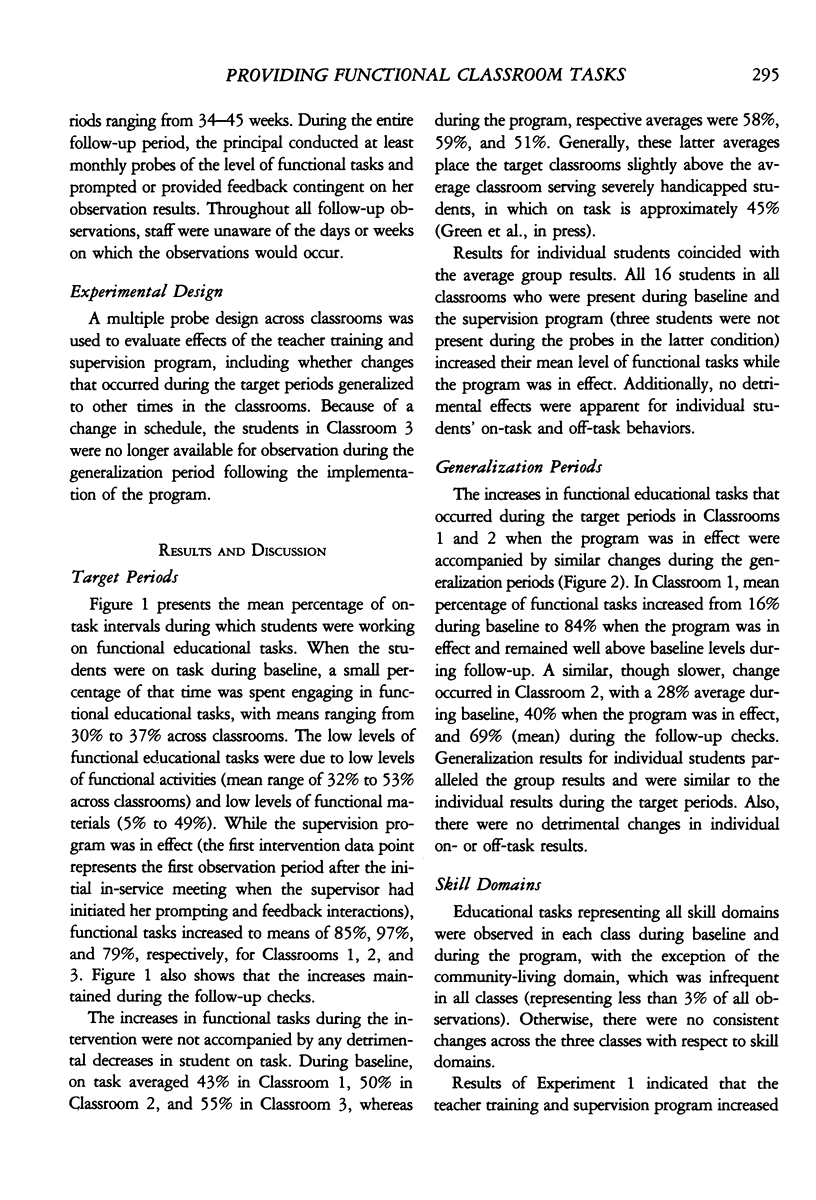
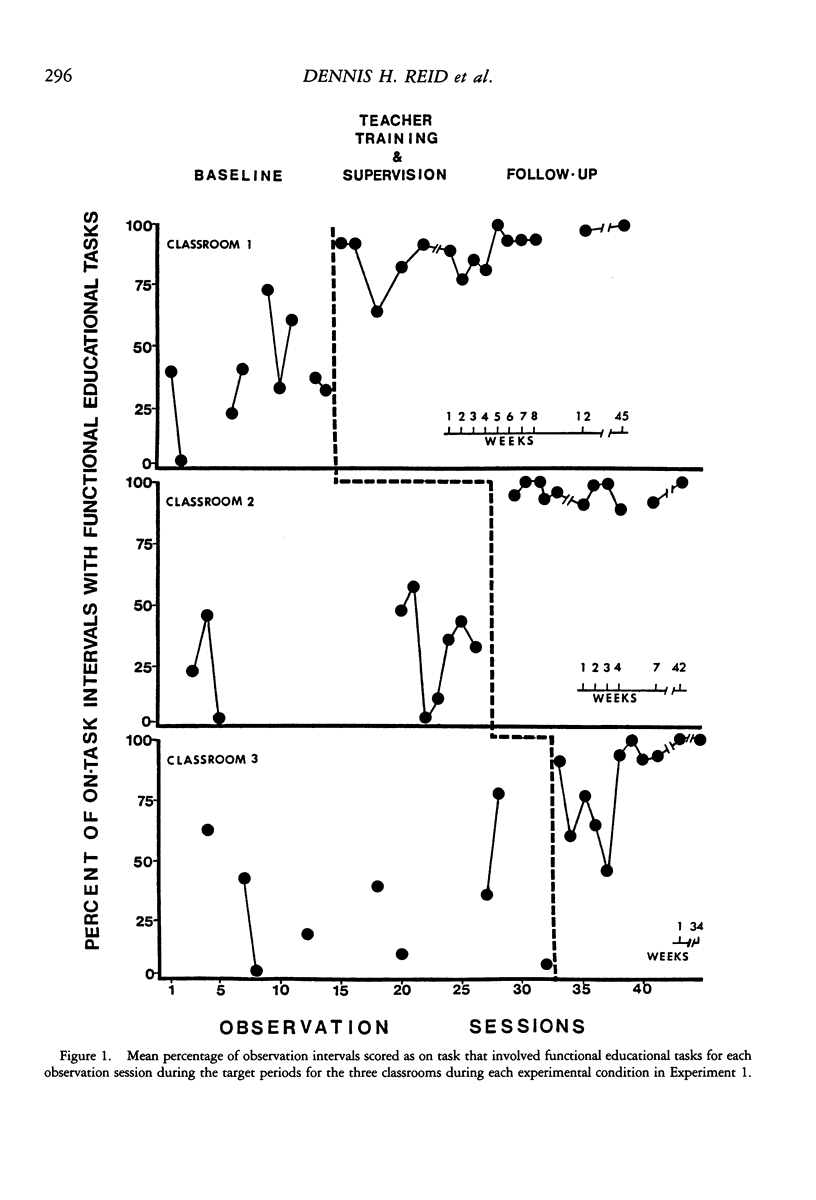
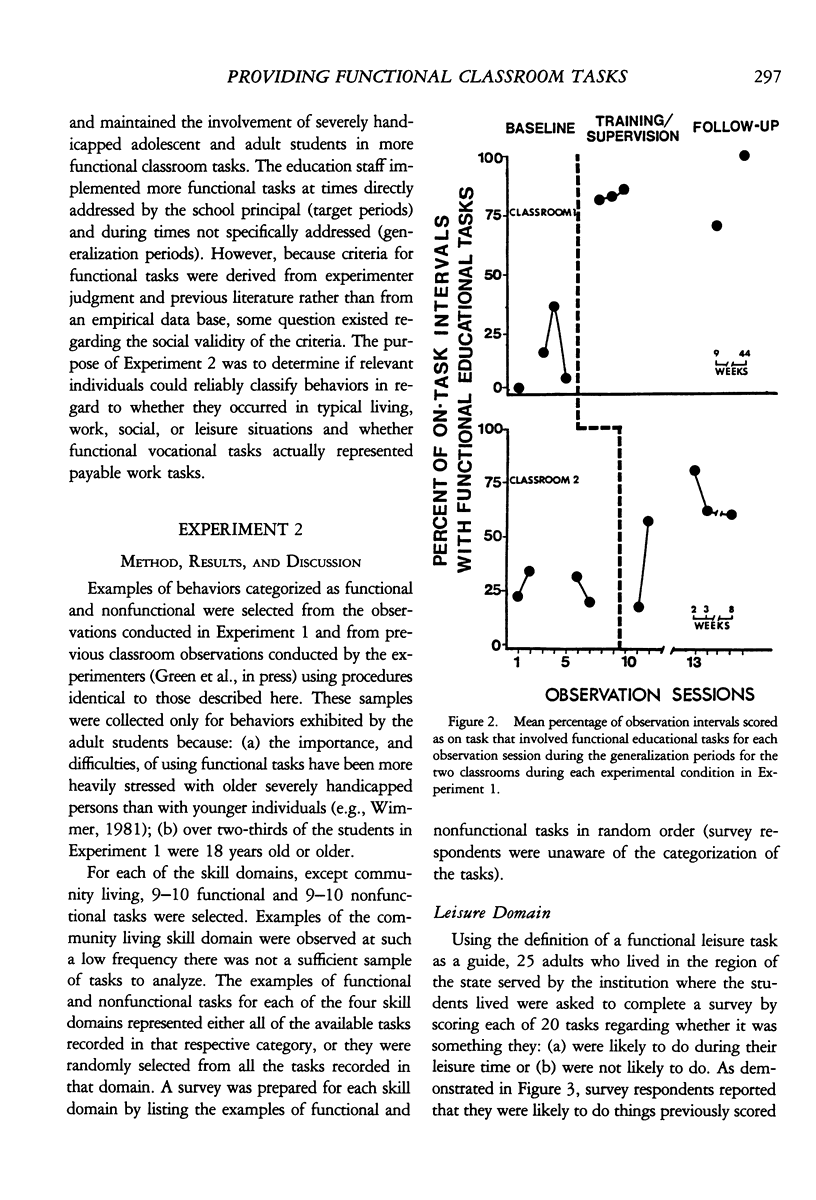
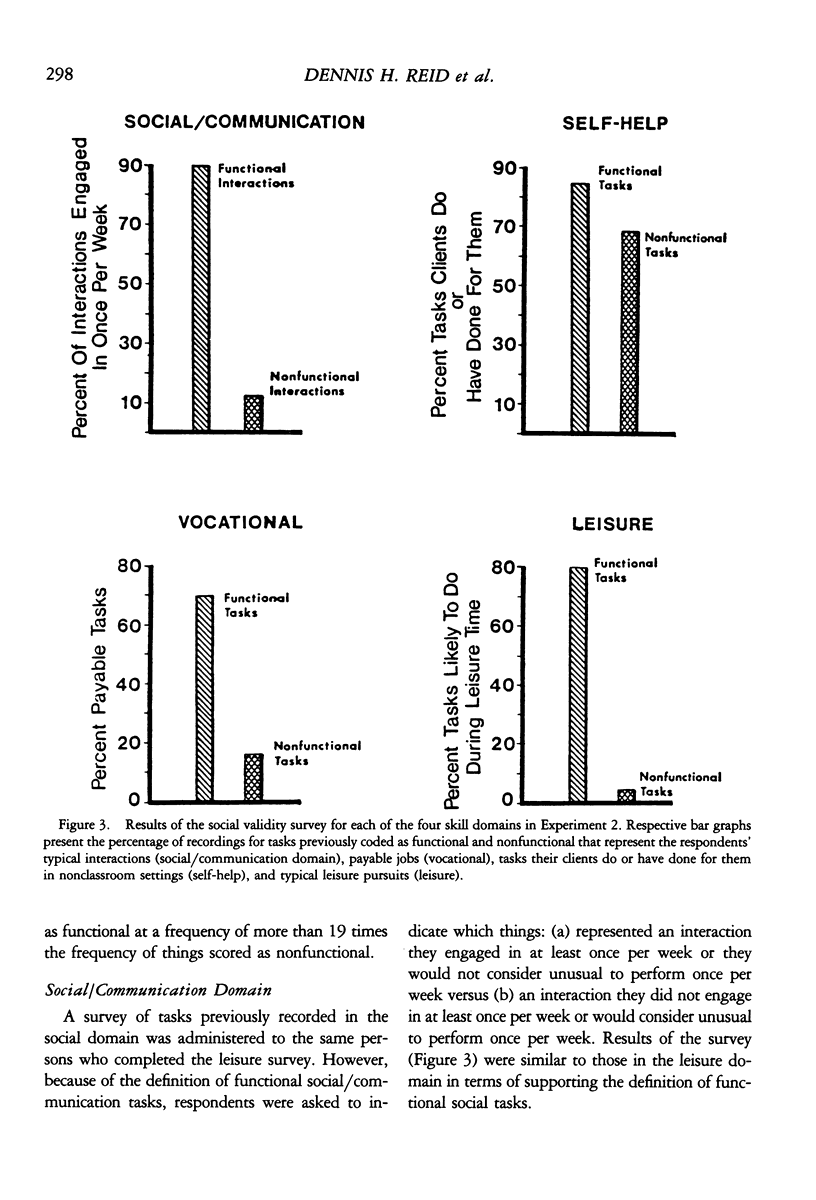
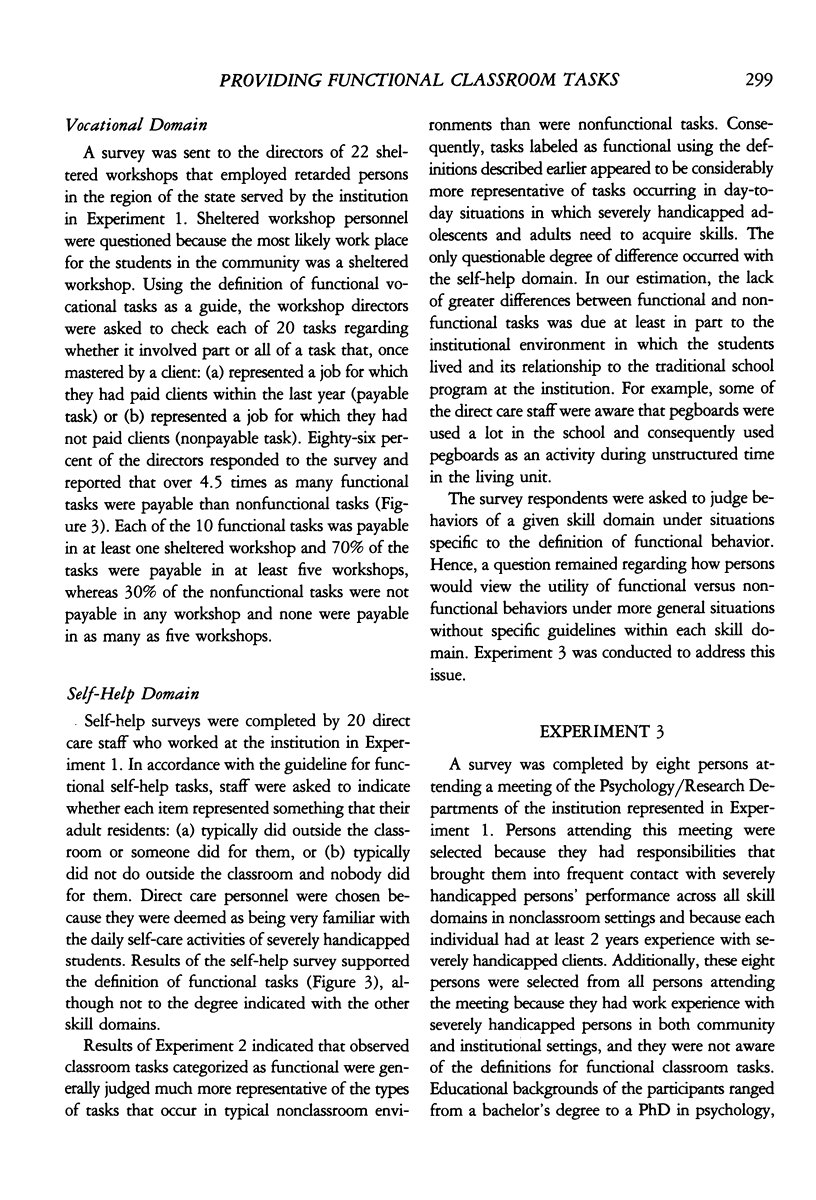
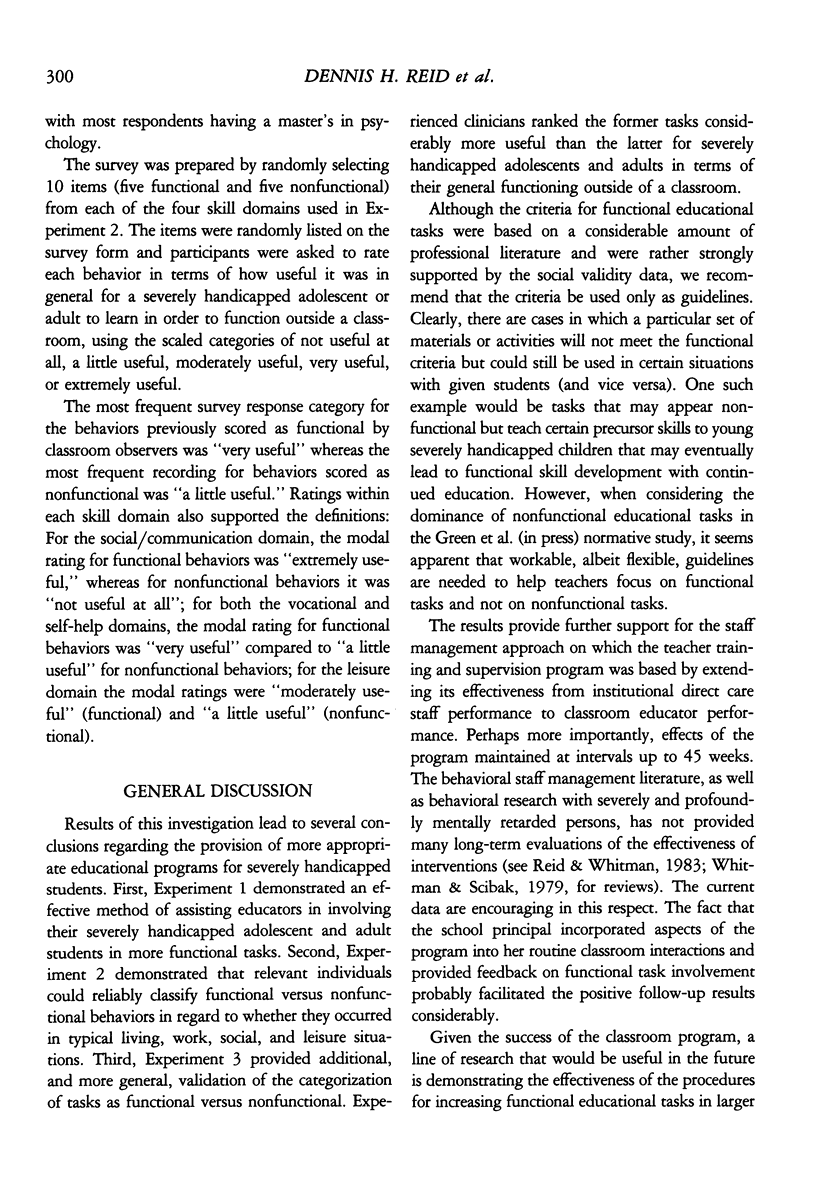
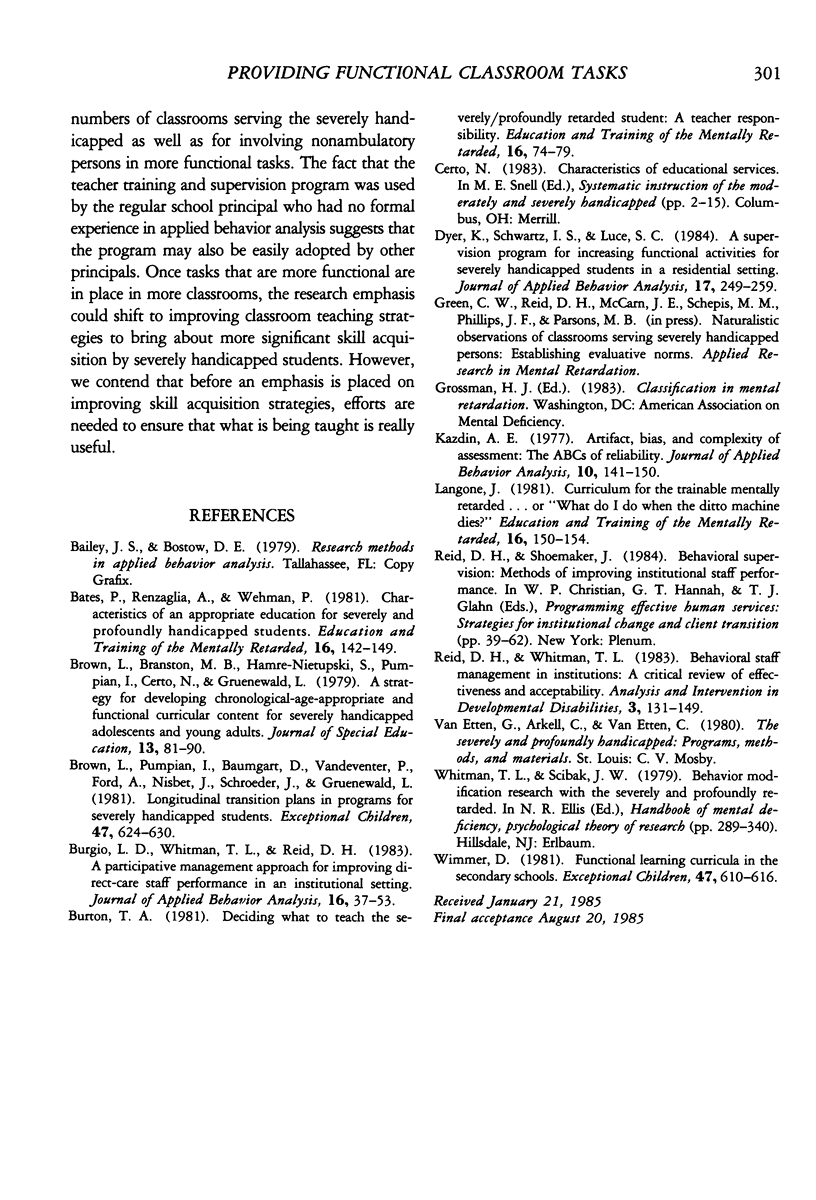
Selected References
These references are in PubMed. This may not be the complete list of references from this article.
- Brown L., Pumpian I., Baumgart D., Vandeventer P., Ford A., Nisbet J., Schroeder J., Gruenewald L. Longitudinal transition plans in programs for severely handicapped students. Except Child. 1981 May;47(8):624–630. doi: 10.1177/001440298104700807. [DOI] [PubMed] [Google Scholar]
- Burgio L. D., Whitman T. L., Reid D. H. A participative management approach for improving direct-care staff performance in an institutional setting. J Appl Behav Anal. 1983 Spring;16(1):37–53. doi: 10.1901/jaba.1983.16-37. [DOI] [PMC free article] [PubMed] [Google Scholar]
- Dyer K., Schwartz I. S., Luce S. C. A supervision program for increasing functional activities for severely handicapped students in a residential setting. J Appl Behav Anal. 1984 Summer;17(2):249–259. doi: 10.1901/jaba.1984.17-249. [DOI] [PMC free article] [PubMed] [Google Scholar]
- Kazdin A. E. Artifact, bias, and complexity of assessment: the ABCs of reliability. J Appl Behav Anal. 1977 Spring;10(1):141–150. doi: 10.1901/jaba.1977.10-141. [DOI] [PMC free article] [PubMed] [Google Scholar]
- Wimmer D. Functional learning curricula in the secondary schools. Except Child. 1981 May;47(8):610–616. doi: 10.1177/001440298104700805. [DOI] [PubMed] [Google Scholar]


